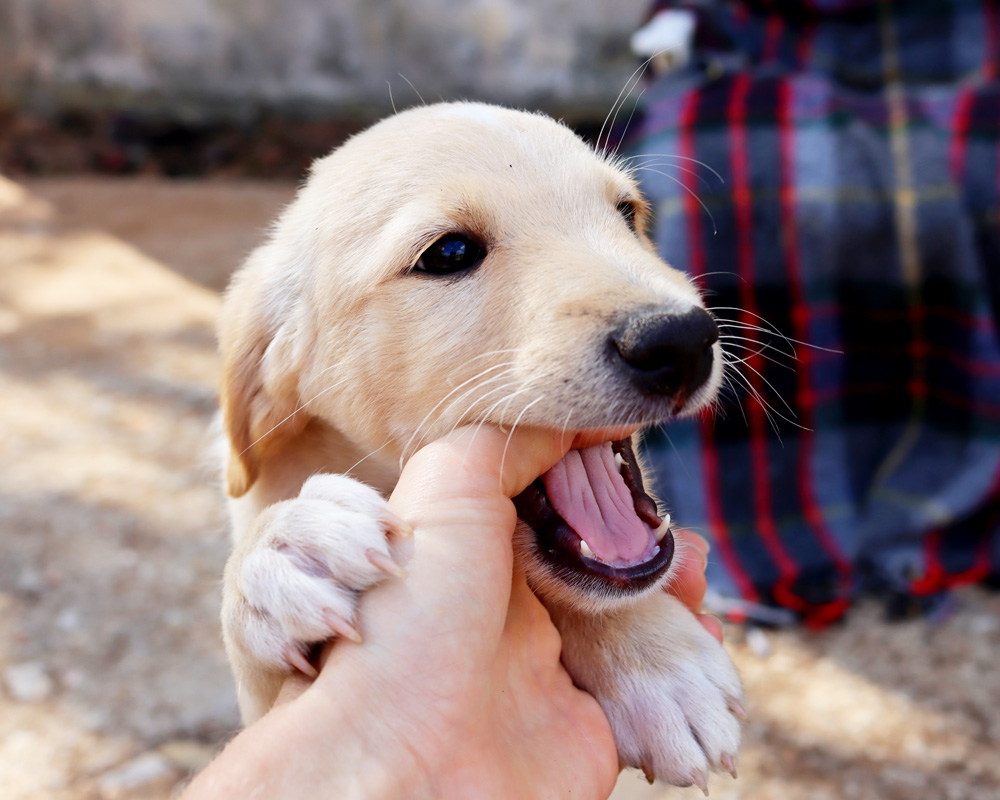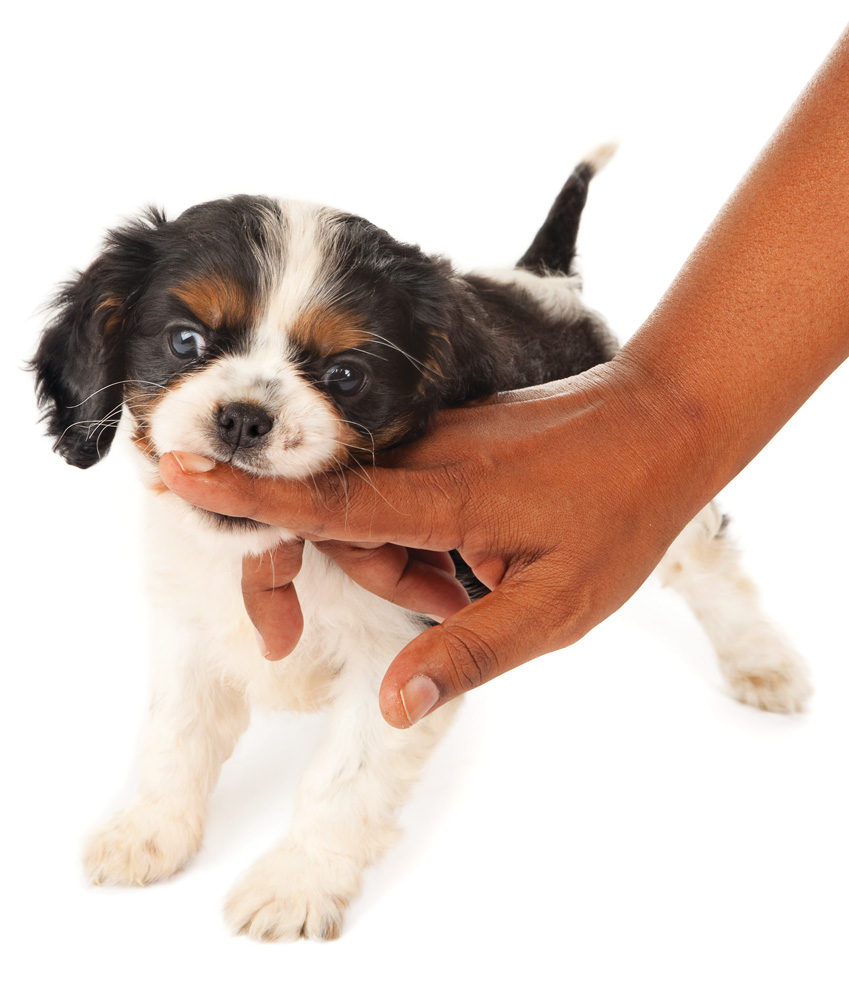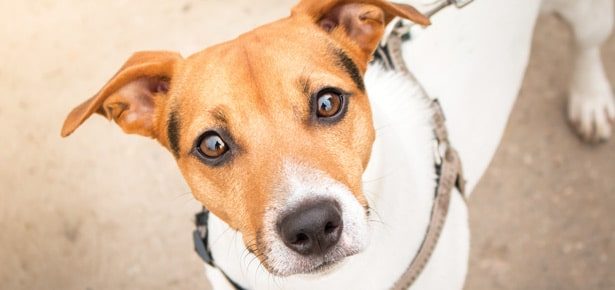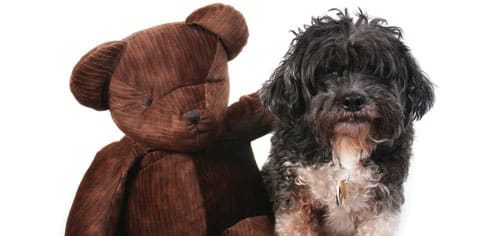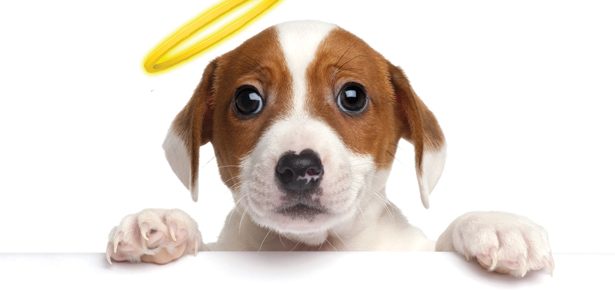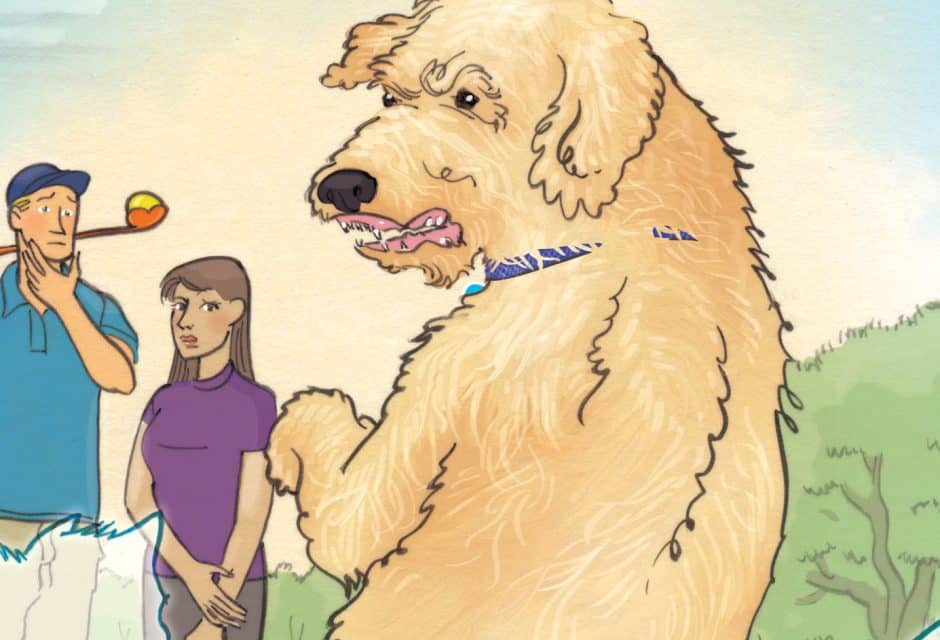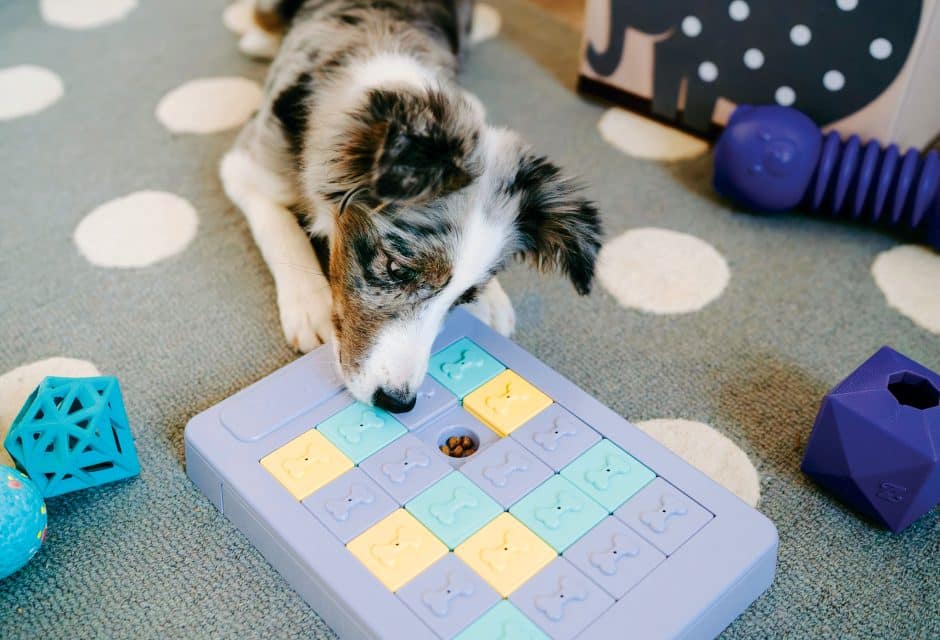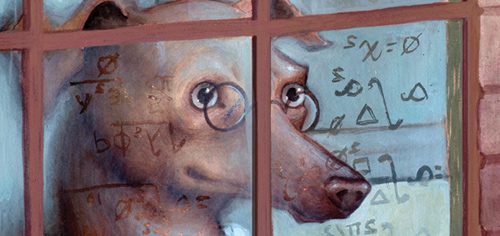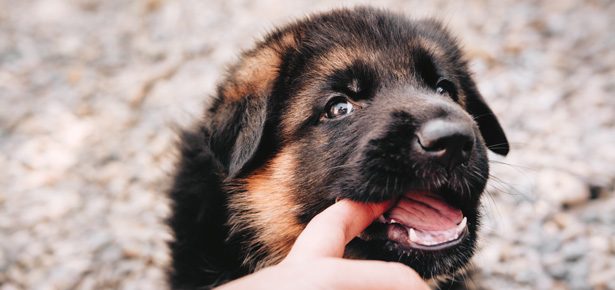
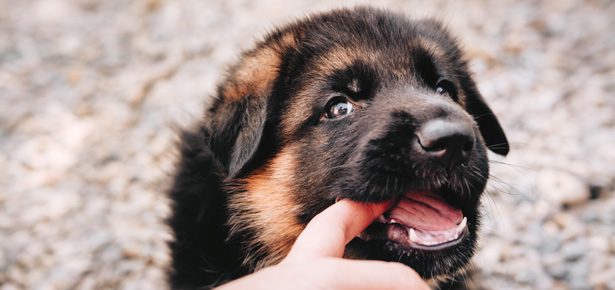
How to Stop Puppy Biting
What to do if your puppy keep biting. Nip nipping in the bud with these expert tips
Wondering how to stop a puppy from biting? You’re not alone. There are a lot of questions around puppy biting, from what’s normal—and not!—to how to get your puppy to stop biting. So let’s jump right in! I’m here to help you nip nipping in the bud.
Puppy Biting: What’s considered normal when it comes to puppy biting behaviour?
First, it is important to understand that it is normal for puppies to mouth, nip, and bite. This should not be confused with truly aggressive biting, which is not often seen in very young puppies (although it can happen). Normal puppy biting takes the form of nipping at fingers, feet, the dragging hems of pants, robes, or other clothing, and even at hair or faces if the pup can reach them. If there is another dog in the home, the puppy will very likely nip at the other dog to gain attention or to solicit play. Puppies have no manners!
Image: katya.pt/bigstock.com
Okay, so nipping is normal, but it hurts! How can I get my puppy to stop biting?
You need to help your pup develop bite inhibition. Bite inhibition means controlling the amount of force in a nip or bite. During the time puppies are still with their littermates, they wrestle and play using their mouths, paws, and bodies. When one pup bites down too hard on another, the bitten pup will yelp. That teaches the biter how much pressure is acceptable and that, along with losing valuable mother’s milk if they bite down too hard on mom’s teat, is the start of how puppies learn bite inhibition. It is also the reason singleton puppies and those taken from their litters too early do not normally start out with good bite inhibition.
Regardless of your pup’s early experience, you can help.
You could try letting out a high-pitched yelp like a young pup would at the moment of the nip, which should result in your pup backing away with a look on his face that says, I’m so sorry! I didn’t realize that would hurt! Then ignore your pup for five seconds or so. If ignoring results in more nipping, leave the area altogether. If you yelp/ignore for only the hardest bites at first and then start doing it for incrementally softer bites, your pup will learn how much pressure is acceptable, and will begin to control the pressure of his jaws. But one caveat: although the technique works well with many puppies, with some (terriers come to mind) it could make them even more excited, leading to more intense nipping. With these dogs, a sharp, deep, “Eh-eh!” may work better in place of the yelp.
Image: Anneka/shutterstock.com
Does Your Pup Bite For Attention? Try This Instead!
Give your pup an alternative way to get your attention, such as licking. It’s simple to teach. Smear a bit of (xylitol-free) peanut butter on the back of your hand. Make a fist and position the hand where your pup can easily reach it, and say in a happy voice, “Kisses!” Your pup will start licking the peanut butter. After a few licks, while there is still peanut butter left, put the hand behind your back, give the verbal cue, and present the hand again. Do a few repetitions, and practice often. Very soon, your pup will learn what “Kisses!” means. (You can also reinforce it by saying “Kisses!” any time he happens to lick you on his own.) Then, when your pup nips, instead of having to ignore him, give a sharp, “Eh-eh!” followed immediately by a high-pitched, happy “Kisses!” Your pup should switch from nipping to licking and will hopefully learn that licking is a much nicer way to get your attention.
Be proactive by giving your puppy something to chew on during the times you know he’s likely to want your attention, such as during television time or when you are working at the computer. Since dogs are crepuscular like wolves are, meaning they’re most active at dawn and dusk (when wolves would be hunting), you may find that proactively giving your puppy something to chew on during those times will save you from being on the receiving end of a flurry of energy-induced biting. Lastly, be sure to pay attention to your puppy during times when he’s not biting, so he learns that behaviours like laying there looking adorable earn him lots of valuable attention!
……………………………………………………………………………………………………
When should I start working with my puppy to control her biting?
Begin as soon as you bring your puppy home, and continue the lessons as long as is needed. I’ve found that by the time pups reach ten or twelve weeks, most are little land sharks so you’ll likely want to start by this age for sure! How long it takes to teach bite inhibition varies with individual pups and requires consistency on your part. In general, it’s best to have bite inhibition accomplished by the age of five or six months, when the puppy enters adolescence.
Is it normal for puppies to bite when playing?
Absolutely! Puppies are very mouthy when they play with other dogs. If you have or know anyone who has a well-adjusted adult female dog who is good with puppies, let your pup play with her. The adult dog will let your puppy be obnoxious to a point and will then put the pup in his place. Lesson learned! The way you play with your puppy is also very important. First, no wrestling! In my experience, little boys (and some not so little boys!) are the ones who love to wrestle with puppies and tend to find teeth on skin to be acceptable. The problem is, the puppy is learning it’s okay to put teeth on people during play. Instead, keep something between you and your pup such as a stuffed animal or tug toy. During play, if your pup’s teeth touch your skin, at that exact moment, say, “Too bad!” followed by immediately taking your toy and leaving. The “Too bad!” serves as a verbal marker to let your pup know the exact second of his transgression, which is followed by the consequence of the game ending. If you are consistent, your puppy should learn that teeth on skin results in losing a valued resource, and the behaviour should stop.
What about when a puppy bites for attention?
There are certain attention-seeking behaviours that, when ignored, will eventually stop. Biting, however, is not one that should be ignored. Who wants to be a patient pin cushion? Consider this: when your pup bites in order to get your attention, does he get it? Do you start playing with him or petting him? If so, you are reinforcing the behaviour and it is more likely to happen again. Instead, especially if your pup is in puppy hyperdrive mode, do this: at the moment of the attention-seeking nip, give a verbal, “Eh-eh!” followed by asking for a few sits, downs, or recalls. Then give him an acceptable chew item. Otherwise, if you give a chew item immediately when your pup nips, he learns that nipping results in earning a reward.
► Pro Tip: With truly aggressive behaviour, the pup may growl outside of the context of play, display a hard stare, or even commit multiple bites without backing off. If you’re unsure as to whether your pup’s biting is normal puppy behaviour or actual aggression, consult a professional trainer. If you can take a video ahead of time to show the trainer, even better!
Join the newsletter and never miss out on dog content again!
"*" indicates required fields
By clicking the arrow, you agree to our web Terms of Use and Privacy & Cookie Policy. Easy unsubscribe links are provided in every email.
